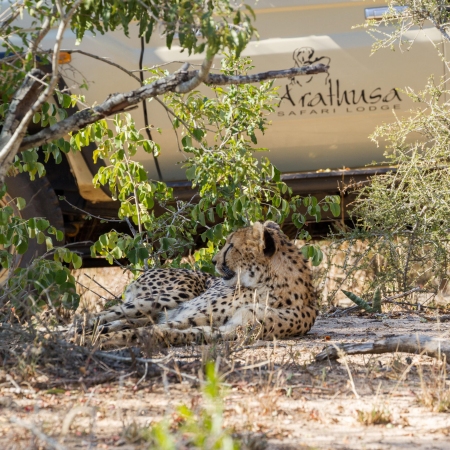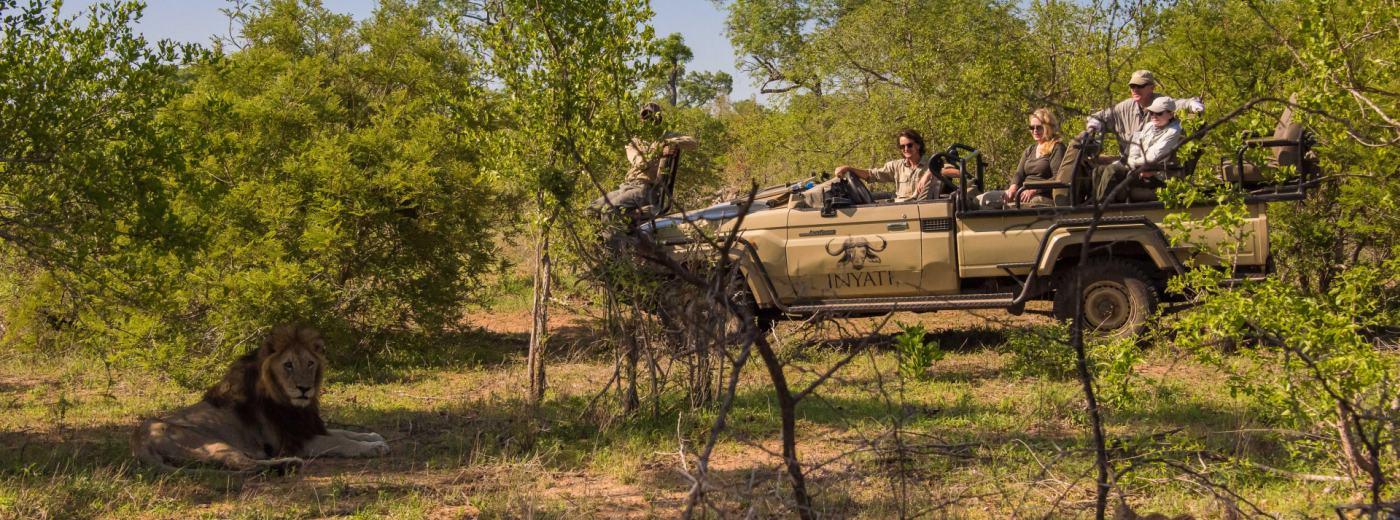One of the first questions that many people ask, when thinking of going on a safari for the first time, is "Is it safe?"
We have all grown up with those wonderfully romantic images of the exciting, untamed African bush, with its multitude of dangerous and wild animals roaming around. The thought of then actually putting yourself amongst them (by choice!) can cause even the sanest person to think that perhaps they are going a bit mad.
Firstly, safaris are overall exceptionally safe, and as long as you abide by some simple and common sense rules, you should be able to relax and thoroughly enjoy the experience.
 The animals are used to vehicles
The animals are used to vehicles
When you are with a trained guide, either in a private game reserve or on a guided safari trip, you have absolutely nothing to worry about. Your guide is trained to understand the animal's behaviour, and a good guide will not put his guests in any threatening situation.
The animals are also fully accustomed to the sight and sound of a 4x4 safari vehicle. Indeed, many of the animals have been born in the National Parks or private game reserves, and have grown up knowing that this large, smelly machine is nothing to fear.
Your guide will ask you not to stand up at any time during your game drive. This is because any sudden movement, or a change in the familiar outline that they recognise, may cause the animal to startle and run off, or become defensive. This could provoke an attack - but purely as a defence mechanism, nothing more. It is also worth bearing in mind that the overpowering smell of the petrol and oil also drowns out any human scent.
If you are in any way nervous while watching an animal, you should not be afraid to ask your guide to move away. Their main concern is that you enjoy your game drive, and would not want to push you into anything that you were not happy with.
why does the guide carry a gun?
When you are on a game drive, you will notice that there will be a loaded gun on board the vehicle. However, this is not in case the Land Rover gets attacked, rather it is for the protection of the tracker and guide if they go off on foot to follow some prints into the bush.
The only real danger to you is that you may get hit on the head by an overhanging branch if you go off-road to track something - so remember to keep a careful eye out!
on a self-drive safari - stay in your car at all times
On a self-drive safari, it goes without saying that you will put yourself in danger if you get out of your car anywhere unless at a designated safe place. Although you may have carefully scanned the area, animals are a master at remaining concealed - predators do it daily when stalking prey - and you may have an unwelcome surprise. If you are sat next to an animal watching it, take note of its behaviour - if it looks agitated in any way, or makes mock runs at you, or stares and paces up and down, then move slowly off.
Don't stay to find out whether it is going to charge or not - you may get more than you bargained for!


 The animals are used to vehicles
The animals are used to vehicles